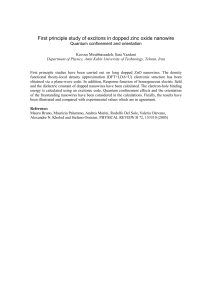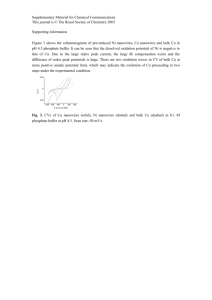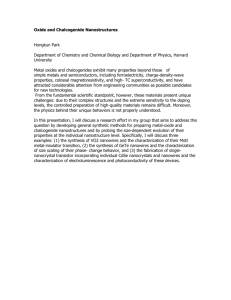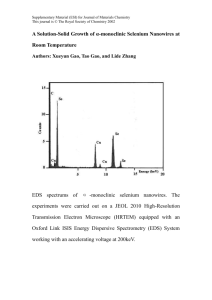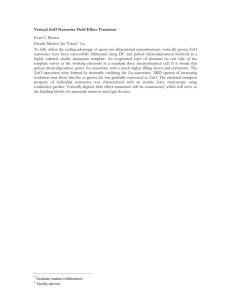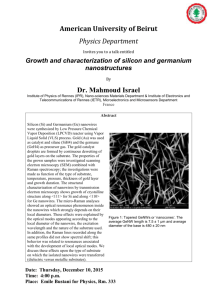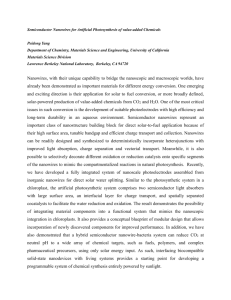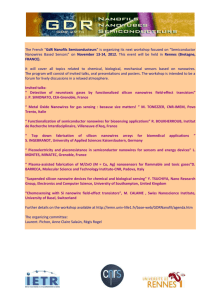P047
advertisement
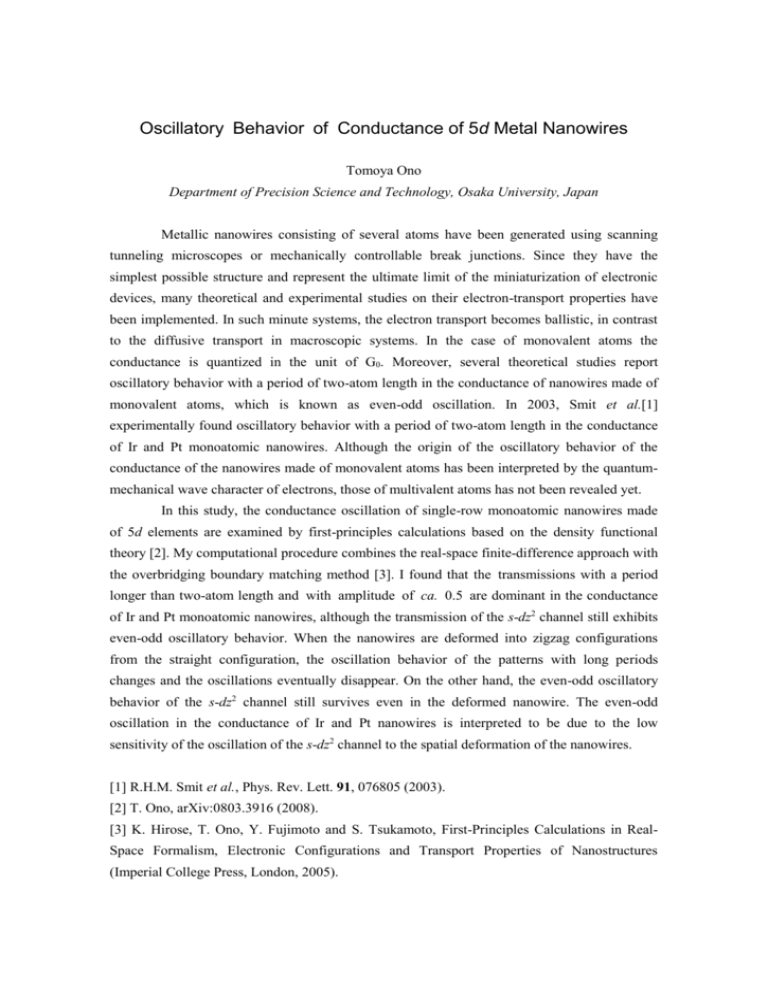
Oscillatory Behavior of Conductance of 5d Metal Nanowires Tomoya Ono Department of Precision Science and Technology, Osaka University, Japan Metallic nanowires consisting of several atoms have been generated using scanning tunneling microscopes or mechanically controllable break junctions. Since they have the simplest possible structure and represent the ultimate limit of the miniaturization of electronic devices, many theoretical and experimental studies on their electron-transport properties have been implemented. In such minute systems, the electron transport becomes ballistic, in contrast to the diffusive transport in macroscopic systems. In the case of monovalent atoms the conductance is quantized in the unit of G0. Moreover, several theoretical studies report oscillatory behavior with a period of two-atom length in the conductance of nanowires made of monovalent atoms, which is known as even-odd oscillation. In 2003, Smit et al.[1] experimentally found oscillatory behavior with a period of two-atom length in the conductance of Ir and Pt monoatomic nanowires. Although the origin of the oscillatory behavior of the conductance of the nanowires made of monovalent atoms has been interpreted by the quantummechanical wave character of electrons, those of multivalent atoms has not been revealed yet. In this study, the conductance oscillation of single-row monoatomic nanowires made of 5d elements are examined by first-principles calculations based on the density functional theory [2]. My computational procedure combines the real-space finite-difference approach with the overbridging boundary matching method [3]. I found that the transmissions with a period longer than two-atom length and with amplitude of ca. 0.5 are dominant in the conductance of Ir and Pt monoatomic nanowires, although the transmission of the s-dz2 channel still exhibits even-odd oscillatory behavior. When the nanowires are deformed into zigzag configurations from the straight configuration, the oscillation behavior of the patterns with long periods changes and the oscillations eventually disappear. On the other hand, the even-odd oscillatory behavior of the s-dz2 channel still survives even in the deformed nanowire. The even-odd oscillation in the conductance of Ir and Pt nanowires is interpreted to be due to the low sensitivity of the oscillation of the s-dz2 channel to the spatial deformation of the nanowires. [1] R.H.M. Smit et al., Phys. Rev. Lett. 91, 076805 (2003). [2] T. Ono, arXiv:0803.3916 (2008). [3] K. Hirose, T. Ono, Y. Fujimoto and S. Tsukamoto, First-Principles Calculations in RealSpace Formalism, Electronic Configurations and Transport Properties of Nanostructures (Imperial College Press, London, 2005).
